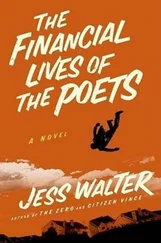Samuel Johnson - Johnson's Lives of the Poets. Volume 2
Здесь есть возможность читать онлайн «Samuel Johnson - Johnson's Lives of the Poets. Volume 2» — ознакомительный отрывок электронной книги совершенно бесплатно, а после прочтения отрывка купить полную версию. В некоторых случаях можно слушать аудио, скачать через торрент в формате fb2 и присутствует краткое содержание. Издательство: Иностранный паблик, Жанр: foreign_poetry, literature_18, Поэзия, foreign_antique, foreign_prose, на английском языке. Описание произведения, (предисловие) а так же отзывы посетителей доступны на портале библиотеки ЛибКат.
- Название:Johnson's Lives of the Poets. Volume 2
- Автор:
- Издательство:Иностранный паблик
- Жанр:
- Год:неизвестен
- ISBN:нет данных
- Рейтинг книги:5 / 5. Голосов: 1
-
Избранное:Добавить в избранное
- Отзывы:
-
Ваша оценка:
- 100
- 1
- 2
- 3
- 4
- 5
Johnson's Lives of the Poets. Volume 2: краткое содержание, описание и аннотация
Предлагаем к чтению аннотацию, описание, краткое содержание или предисловие (зависит от того, что написал сам автор книги «Johnson's Lives of the Poets. Volume 2»). Если вы не нашли необходимую информацию о книге — напишите в комментариях, мы постараемся отыскать её.
Johnson's Lives of the Poets. Volume 2 — читать онлайн ознакомительный отрывок
Ниже представлен текст книги, разбитый по страницам. Система сохранения места последней прочитанной страницы, позволяет с удобством читать онлайн бесплатно книгу «Johnson's Lives of the Poets. Volume 2», без необходимости каждый раз заново искать на чём Вы остановились. Поставьте закладку, и сможете в любой момент перейти на страницу, на которой закончили чтение.
Интервал:
Закладка:
Samuel Johnson
Johnson's Lives of the Poets – Volume 2
INTRODUCTION
This volume contains a record of twenty lives, of which only one—that of Edward Young—is treated at length. It completes our edition of Johnson's Lives of the Poets, from which a few only of the briefest and least important have been omitted.
The eldest of the Poets here discussed were Samuel Garth, Charles Montague (Lord Halifax), and William King, who were born within the years 1660-63. Next in age were Addison's friend Ambrose Philips, and Nicholas Rowe the dramatist, who was also the first editor of Shakespeare's plays after the four folios had appeared. Ambrose Philips and Rowe were born in 1671 and 1673, and Isaac Watts in 1674. Thomas Parnell, born in 1679, would follow next, nearly of like age with Young, whose birth-year was 1681. Pope's friend John Gay was of Pope's age, born in 1688, two years later than Addison's friend Thomas Tickell, who was born in 1686. Next in the course of years came, in 1692, William Somerville, the author of "The Chace." John Dyer, who wrote "Grongar Hill," and James Thomson, who wrote the "Seasons," were both born in the year 1700. They were two of three poets—Allan Ramsay, the third—who, almost at the same time, wrote verse instinct with a fresh sense of outward Nature which was hardly to be found in other writers of that day. David Mallet, Thomson's college-friend and friend of after-years—who shares with Thomson the curiosity of critics who would decide which of them wrote "Rule Britannia"—was of Thomson's age.
The other writers of whose lives Johnson here gives his note were men born in the beginning of the eighteenth century: Gilbert West, the translator of Pindar, in 1706; George Lyttelton, in 1709. William Shenstone, whose sense of Nature, although true, was mixed with the conventions of his time, and who once asked a noble friend to open a waterfall in the garden upon which the poet spent his little patrimony, was born in 1714; Thomas Gray, in 1716; William Collins, in 1720; and Mark Akenside, in 1721. In Collins, while he lived with loss of reason, Johnson, who had fears for himself, took pathetic interest. Akenside could not interest him much. Akenside made his mark when young with "The Pleasures of Imagination," a good poem, according to the fashion of the time, when read with due consideration as a young man's first venture for fame. He spent much of the rest of his life in overloading it with valueless additions. The writer who begins well should let well alone, and, instead of tinkering at bygone work, follow the course of his own ripening thought. He should seek new ways of doing worthy service in the years of labour left to him.
H. M.
KING
William King was born in London in 1663; the son of Ezekiel King, a gentleman. He was allied to the family of Clarendon.
From Westminster School, where he was a scholar on the foundation under the care of Dr. Busby, he was at eighteen elected to Christ Church in 1681; where he is said to have prosecuted his studies with so much intenseness and activity, that before he was eight years' standing he had read over, and made remarks upon, twenty-two thousand odd hundred books and manuscripts. The books were certainly not very long, the manuscripts not very difficult, nor the remarks very large; for the calculator will find that he despatched seven a day for every day of his eight years; with a remnant that more than satisfies most other students. He took his degree in the most expensive manner, as a GRAND COMPOUNDER; whence it is inferred that he inherited a considerable fortune.
In 1688, the same year in which he was made Master of Arts, he published a confutation of Varillas's account of Wickliffe; and, engaging in the study of the civil law, became Doctor in 1692, and was admitted advocate at Doctors' Commons.
He had already made some translations from the French, and written some humorous and satirical pieces; when, in 1694, Molesworth published his "Account of Denmark," in which he treats the Danes and their monarch with great contempt; and takes the opportunity of insinuating those wild principles by which he supposes liberty to be established, and by which his adversaries suspect that all subordination and government is endangered.
This book offended Prince George; and the Danish Minister presented a memorial against it. The principles of its author did not please Dr. King; and therefore he undertook to confute part, and laugh at the rest. The controversy is now forgotten: and books of this kind seldom live long when interest and resentment have ceased.
In 1697 he mingled in the controversy between Boyle and Bentley; and was one of those who tried what wit could perform in opposition to learning, on a question which learning only could decide.
In 1699 was published by him "A Journey to London," after the method of Dr. Martin Lister, who had published "A Journey to Paris." And in 1700 he satirised the Royal Society—at least, Sir Hans Sloane, their president—in two dialogues, intituled "The Transactioner."
Though he was a regular advocate in the courts of civil and canon law, he did not love his profession, nor, indeed, any kind of business which interrupted his voluptuary dreams or forced him to rouse from that indulgence in which only he could find delight. His reputation as a civilian was yet maintained by his judgments in the Courts of Delegates, and raised very high by the address and knowledge which he discovered in 1700, when he defended the Earl of Anglesea against his lady, afterwards Duchess of Buckinghamshire, who sued for a divorce and obtained it.
The expense of his pleasures, and neglect of business, had now lessened his revenues; and he was willing to accept of a settlement in Ireland, where, about 1702, he was made Judge of the Admiralty, Commissioner of the Prizes, Keeper of the Records in Birmingham's Tower, and Vicar-General to Dr. Marsh, the primate.
But it is vain to put wealth within the reach of him who will not stretch out his hand to take it. King soon found a friend, as idle and thoughtless as himself, in Upton, one of the judges, who had a pleasant house called Mountown, near Dublin, to which King frequently retired; delighting to neglect his interest, forget his cares, and desert his duty.
Here he wrote "Mully of Mountown," a poem; by which, though fanciful readers in the pride of sagacity have given it a poetical interpretation, was meant originally no more than it expressed, as it was dictated only by the author's delight in the quiet of Mountown.
In 1708, when Lord Wharton was sent to govern Ireland, King returned to London, with his poverty, his idleness, and his wit; and published some essays, called "Useful Transactions." His "Voyage to the Island of Cajamai" is particularly commended. He then wrote the "Art of Love," a poem remarkable, notwithstanding its title, for purity of sentiment; and in 1709 imitated Horace in an "Art of Cookery," which he published with some letters to Dr. Lister.
In 1710 he appeared as a lover of the Church, on the side of Sacheverell; and was supposed to have concurred at least in the projection of the Examiner. His eyes were open to all the operations of Whiggism; and he bestowed some strictures upon Dr. Kennet's adulatory sermon at the funeral of the Duke of Devonshire.
"The History of the Heathen Gods," a book composed for schools, was written by him in 1711. The work is useful, but might have been produced without the powers of King. The same year he published "Rufinus," an historical essay; and a poem intended to dispose the nation to think as he thought of the Duke of Marlborough and his adherents.
In 1711, competence, if not plenty, was again put into his power. He was, without the trouble of attendance or the mortification of a request, made Gazetteer. Swift, Freind, Prior, and other men of the same party, brought him the key of the Gazetteer's office. He was now again placed in a profitable employment, and again threw the benefit away. An Act of Insolvency made his business at that time particularly troublesome; and he would not wait till hurry should be at an end, but impatiently resigned it, and returned to his wonted indigence and amusements.
Читать дальшеИнтервал:
Закладка:
Похожие книги на «Johnson's Lives of the Poets. Volume 2»
Представляем Вашему вниманию похожие книги на «Johnson's Lives of the Poets. Volume 2» списком для выбора. Мы отобрали схожую по названию и смыслу литературу в надежде предоставить читателям больше вариантов отыскать новые, интересные, ещё непрочитанные произведения.
Обсуждение, отзывы о книге «Johnson's Lives of the Poets. Volume 2» и просто собственные мнения читателей. Оставьте ваши комментарии, напишите, что Вы думаете о произведении, его смысле или главных героях. Укажите что конкретно понравилось, а что нет, и почему Вы так считаете.












